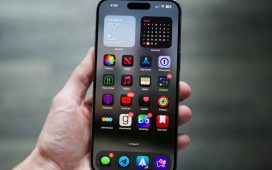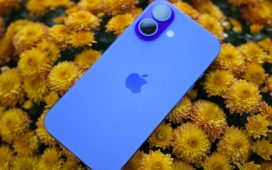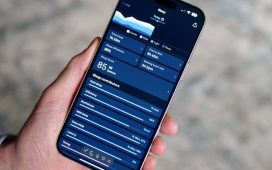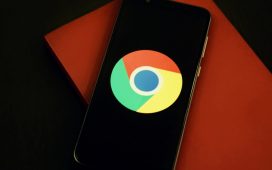
This is going to be a busy year for Google Pixel devices. In less than a month, Google is expected to launch its first new Pixel of the year with the Google Pixel 8a. Following that, we’re expecting a Google Pixel Fold 2, possibly another Pixel Tablet, the Pixel 9 series, and a Pixel Watch 3 later in the fall.
There’s plenty to look forward to with all of those Pixels, but if you ask me, I think the Pixel 8a is the most promising of the bunch. In a year when Google has exciting upgrades planned for its flagship and foldable phones, Google’s budget-focused omodel is what’s really on my mind.
Google is at its best with cheaper phones

Google’s Pixel phones have existed since 2016, with the first Pixel A-series device — the Google Pixel 3a — introduced in 2019. The Pixel 3a was a special phone for a few reasons. It delivered a flagship-like camera, a quality display, reliable performance, and clean software.
The Pixel 3a offered all of that in a well-constructed package that retailed for a mere $499. To no one’s surprise, it quickly became the budget phone recommendation of the year. Earlier Nexus phones proved that Google had a knack for delivering quality smartphones at affordable prices, and the Pixel 3a proved that Google still had a masterful hand in this field.

Later entries in the Pixel A-series only continued to emphasize that point. The Google Pixel 4a and Google Pixel 5a built upon the Pixel 3a’s formula, and they were both among my most-used phones in 2020 and 2021, respectively. They wereeasy-to-live-with phones that did everything I asked of them — and for hundreds of dollars less than the competition. The Google Pixel 6a and Google Pixel 7a faced some issues in terms of unreliable chipsets and price increases, but even so, they were still easy phones to recommend.
This isn’t to say Google hasn’t had success with more expensive phones, but the company clearly has a unique skill for creating budget-minded devices. Even in a year when Google released its best Pixel flagship ever — the Google Pixel 8 Pro — the cheaper Google Pixel 8 took away a lot of the limelight from it.
Why the Pixel 8a could be so exciting

Google has yet to announce the Pixel 8a, but the next entry in the Pixel A-series has leaked. A lot. We have a very good idea of what the Pixel 8a will look like both inside and out, and assuming what we’ve heard about the phone is true, it sounds like Google’s made all of the right decisions for this year’s release.
One of the main issues of the Pixel 6a and Pixel 7a has been their chipset. The former is powered by Google’s first-generation Tensor chip, while the latter has the second-gen Tensor G2 chip. Naturally, we’re expecting the Pixel 8a to get the Tensor G3.
The Tensor G3 is far from the most technically impressive smartphone chip available in 2024, but — at least in my experience — it’s a significant upgrade over the previous two Tensor iterations. It runs cooler, is a bit more battery efficient, and is generally a chipset I can more confidently rely on than Google’s previous two pieces of silicone.

Speaking of the battery, word on the street is that Google is increasing the battery capacity and the wired charging speed of the Pixel 8a. More specifically, the phone should go from a 4,385mAh battery to a 4,500mAh one. It will also ramp up to 27-watt charging compared to just 18W. A faster chip, a bigger battery, and faster charging? Sign. Me. Up.
And that’s not all! Perhaps even more exciting, multiple reports claim that the Google Pixel 8a is getting a 120Hz refresh rate for its display. One of the Pixel 7a’s most notable upgrades was its 90Hz refresh rate compared to the 60Hz maximum of the Pixel 6a, so going up to 120Hz just a year later is incredible.
We aren’t expecting any significant camera upgrades, but that’s honestly fine. Camera quality was one of the Pixel 7a’s strongest suits. It was other aspects of the 7a that brought it down — be it the unreliability of the Tensor G2 chip, slow charging, etc. Those things should be addressed head-on with the Pixel 8a, and paired with the same reliable 64MP main camera + 13MP ultrawide camera, we may end up with a recipe that’s impossible to beat.
It all hinges on one thing

Let’s assume everything I just mentioned above is true. Google ships the Pixel 8a with its Tensor G3 chip, a larger battery, faster charging, and a 120Hz display. Those are fairly significant upgrades, so surely that’s going to come at the expense of a price increase? Not necessarily.
Information about the Pixel 8a’s price is mixed. Some reports claim that the phone could see a $50 to $100 price increase over the Pixel 8a, while others suggest it’ll retain the same $499 starting price as the Pixel 7a. If — and only if — Google delivers these rumored upgrades without a price hike, we’ll be looking at a really special phone.
At $499, it’s hard to imagine the Pixel 8a not becoming one of 2024’s best budget smartphone picks. However, if Google ups the price to $549 or even $599, things become messy. If I can buy a Google Pixel 8 for just $549 right now, why would I bother with the Pixel 8a in the first place? Google needs to get this right. But if it does? Well, I’ll have to update our picks for the best cheap phones — and possibly our list of the best smartphones overall.
Google is widely expected to announce the Pixel 8a at Google I/O on May 14.
Editors’ Recommendations












